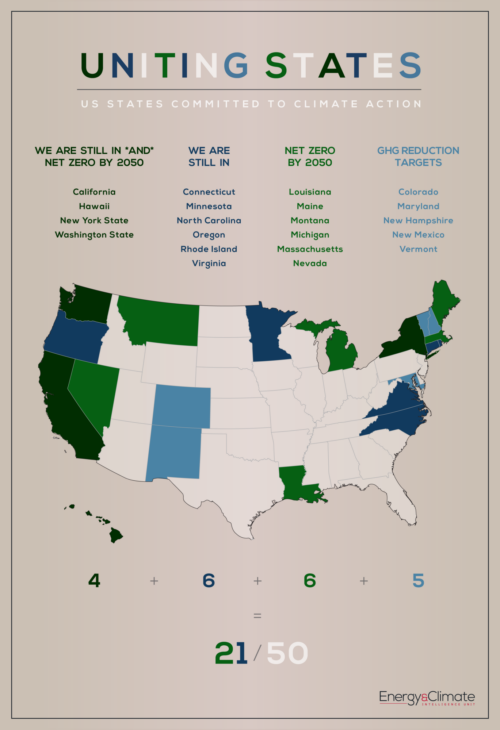The sum of its parts: US states are uniting for climate
Irrespective of the election outcome, the US’s shift away from fossil fuels and towards low-carbon alternatives is happening.
Last updated:
In 2015 at the 21st UN climate summit (COP21) the Obama Administration signed the Paris Agreement and committed to cut US greenhouse gas emissions by at least 26% by 2025 compared with 2005 emission levels. Just a year later, newly elected President Trump declared from the White House Rose Garden that the US would pull out of the Paris Agreement. Regardless of the outcome of the US presidential election on November 3rd, the world’s second largest emitter of greenhouse gases will no longer be party to the Paris Agreement the very next day.
One thing is for sure though. Irrespective of the election outcome, the US’s shift away from fossil fuels and towards low-carbon alternatives is happening. That's because of the massive groundswell of state and non-state actor commitments saying ‘we are still in’ the Paris Agreement; an energy market defined by renewables outpacing and out pricing fossil fuel alternatives; an increasingly climate-aware public; and the mounting effects of climate change itself.
